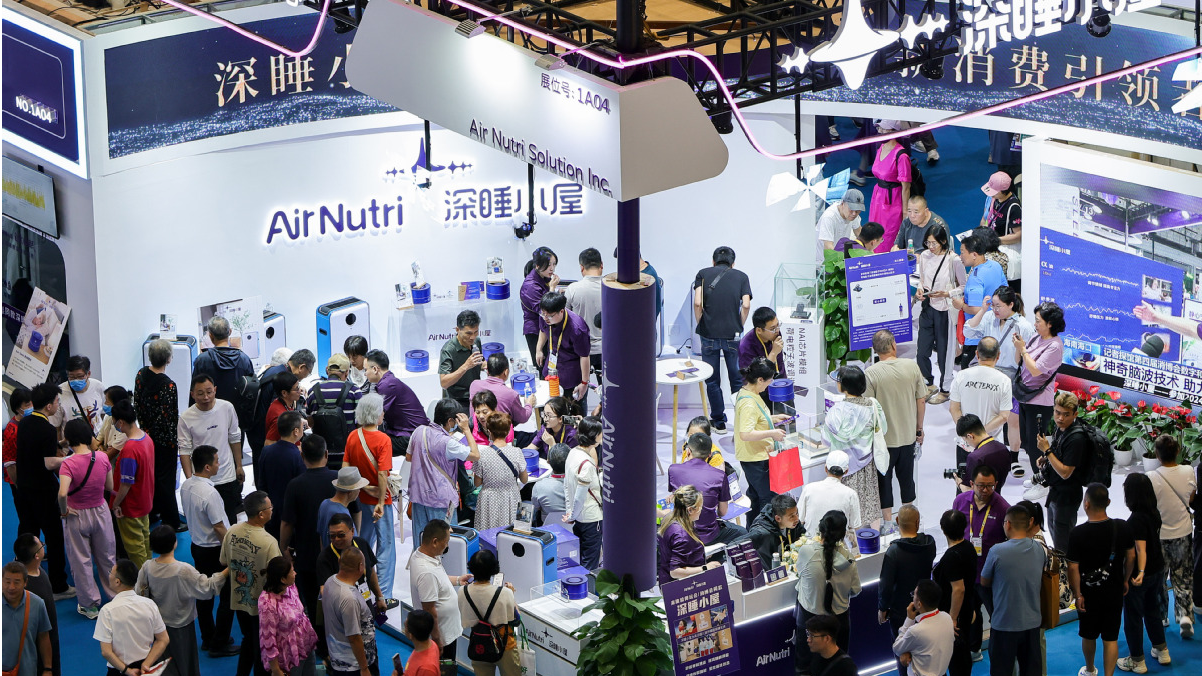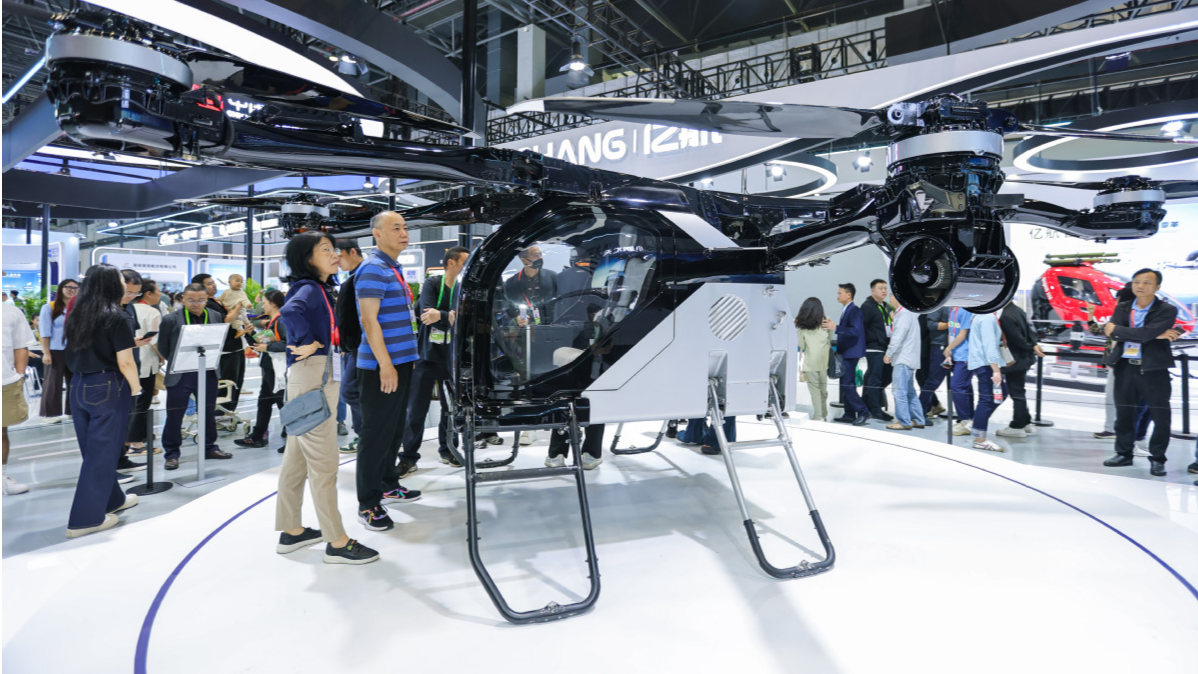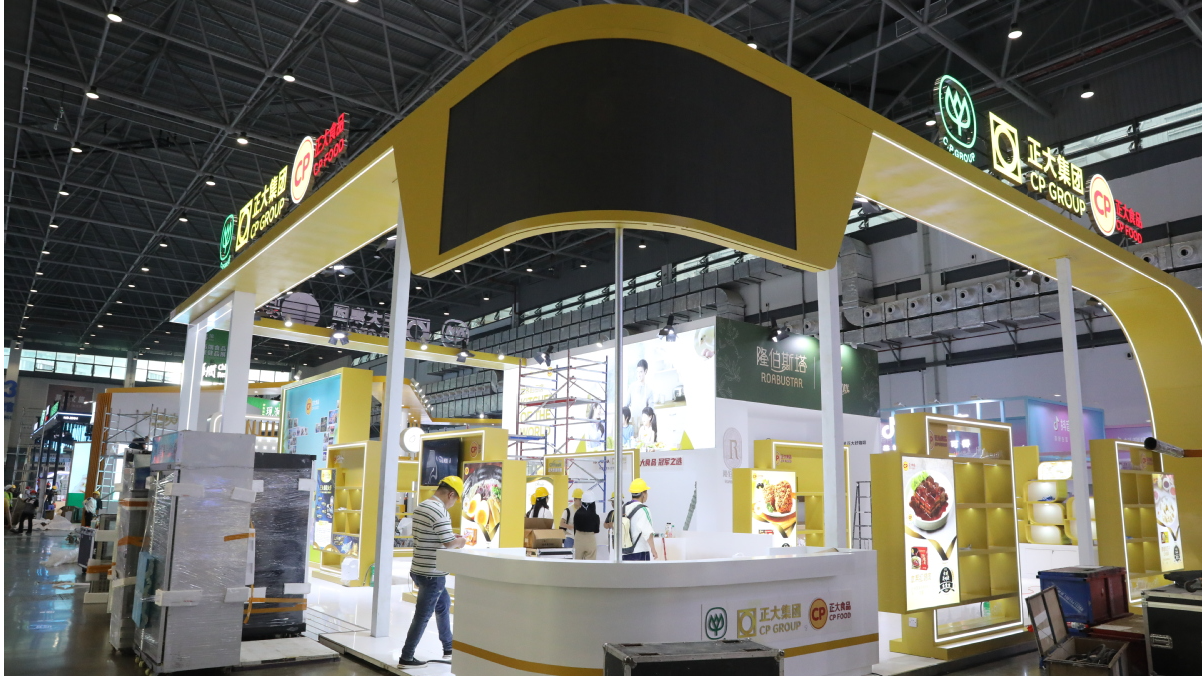
By leveraging policy advantages and adopting innovative approaches, both Chinese as well as foreign businesses are expanding their reach across industries, propelling growth in China's vast consumption market.
In the just-concluded China International Consumer Products Expo 2025 in Hainan province, foreign giants like Burberry and CP Group have shown optimism and long-term commitment to the Chinese market.
Several foreign brands that are new to China, like Steelite, are also being enticed by its vast market potential, opting to debut their products and services in the country.
READ MORE: Africa poised to leverage China's vast consumer market potential
Some overseas enterprises have also selected China as their prime global launchpad for new products.
Faced with geopolitical conflicts and trade uncertainties, Chinese trade entities are also on the lookout for fresh domestic growth opportunities. Following the latest round of robust policies, they are expanding their domestic sales arenas.
"A stable and predictable international trade system, based on fair and transparent rules, is essential for sustained global prosperity. By expanding imports and facilitating two-way investment, China creates opportunities for countries around the world to share its growth," said Zhang Xiangchen, deputy director-general of the WTO, who delivered a speech via video link at the expo.
The expo, which concluded on April 18, attracted the participation of a record 1,767 companies and 4,209 consumer brands from 71 countries and regions this year, according to the local government of Hainan.
It led to 52 cooperation agreements, with a total value of around 92 billion yuan ($12.6 billion).
Business executives and experts said that the Chinese market brims with potential. Thriving sectors such as the low-altitude economy and new energy vehicles (NEVs) are propelling related industries to stand out on the global stage, thereby further unlocking consumption possibilities.
British luxury brand Burberry, a five-time participant at the consumer expo, said China is one of the most important and dynamic markets globally, and the country's high-level opening-up has enabled the world to share the potential and opportunities of its market.
"China boasts the advantage of a super large-scale consumption market. Chinese consumers' demand for high-quality products and services has driven the upgrading and development of the consumption markets in the country and globally," said Josie Zhang, president of Burberry Greater China.
"The growth of the Chinese market comes from different types of consumers, with the rise of emerging consumer groups. In the long run, China is expected to continuously play an important role in driving global high-end consumption," Zhang said.
Lily Yang, associate brand director of OSIM China, a Singapore-based health products provider, highlighted the expo as a national-level platform that has incentivized over 150 international brands to establish their first stores in Hainan through measures like "first-store economy" incentives and "tax-free +consumption upgrade" policies.

As a high-end massage chair brand that has participated in the expo for five consecutive years, OSIM is among those benefiting from these policies.
"The Ministry of Commerce (MOC), in conjunction with the National Health Commission, has issued a special action plan to boost consumption in the healthcare sector and introduce various measures around healthy eating, fitness, elderly care services and more, to further integrate the health and wellness industry with consumer markets.
"This has presented opportunities for many international brands. OSIM will continue to follow China's health trends, focusing on the key health aspect of 'sleep' and unveil products like massage chairs," said Yang.
Waleed Abumazen, founder and CEO of Singapore-based company Orient Crown which specializes in watch winders and customized safe boxes, expressed his intent to explore more market opportunities and potential partnerships in China.
"There's still significant consumer demand here in China and ongoing opportunities in the country. I particularly recommend mid-sized businesses to consider expanding into the Chinese market," he said.
Zhang Beier, China wholesale manager of British tea brand Whittard of Chelsea that has entered numerous high-end supermarkets and which plans to enter duty-free channels this month, also expressed confidence in the Chinese market.
He praised the positive market environment in China and highlighted the brand's efforts at expansion in the market.
Sui Jiangkun, China regional manager for British ceramics brand Steelite, noted the high levels of consumer spending and acceptance of new products in China, expressing the brand's aspirations for further development in the country.
In the Government Work Report delivered in March, boosting consumption was listed as a top priority among this year's tasks.
As part of the country's efforts to boost domestic demand, the Ministry of Commerce, together with five other departments, launched the "Shopping in China" campaign at the opening of the consumer expo to help stimulate domestic consumption, and various kinds of events are planned to be carried out nationwide.
The Ministry of Commerce is encouraging local governments to hold debut performances, exhibitions, and distinctive events in various forms and formats. For shopping, key pedestrian streets, commercial complexes, shopping malls, supermarkets and outlets have been encouraged to launch promotions and high-quality new products, according to a document on organizing the "Shopping in China" series of events.
In addition, various provinces and cities are being encouraged to hold activities such as food markets, culinary exchanges and expos of food ingredients, as well as launch high-quality tourist routes and travel consumption guides, organize cultural performances, high-level sports events and museum exhibitions, the guideline said.
China's consumption market has seen steady growth.
In the first quarter, total retail sales of consumer goods in China reached 12.47 trillion yuan, up 4.6 percent year-on-year. The catering revenue came in at 1.4 trillion yuan, growing 4.7 percent on a yearly basis, said the National Bureau of Statistics (NBS).
Foreign companies are optimistic about the Chinese market, and domestic enterprises are strengthening their operations in China, tapping into new growth points within the vast domestic consumption market.
Sun Liye, vice-president of United Aircraft, emphasized the emergence of the low-altitude economy as a new growth point following the development of electric vehicles, with the potential of topping the globe in the coming years.
The low-altitude economy, which encompasses economic activities conducted below an airspace of 1,000 meters, including drone logistics, low-altitude tourism, aircraft manufacturing and flight training has been included in top-level policy designs in recent years.
The promotion of the low-altitude economy policies has further ignited enthusiasm for low-altitude flights, propelling rapid growth across the entire industry chain. The Civil Aviation Administration of China (CAAC) has previously forecast that the market size of the nation's low-altitude economy could reach 3.5 trillion yuan by 2035.
Sun said the industry's rapid development has also driven advancements in logistics, emergency rescue, agriculture, and other industries, catering to rapidly varying consumer demand.

Wang Zhao, COO of EHang, said the company's customers mainly consist of government bodies and companies in the cultural and tourism sectors.
"But personal ownership of aircraft or taking eVTOLs (electric vertical takeoff and landing aircraft) as 'air-taxis' is not far off. It is important to establish hubs for automatic recharging, maintenance and storage of aircraft, facilitating wider coverage of aircraft operations," he said.
READ MORE: Luxury brands capitalize on 'debut economy' to tap China market
While some enterprises face challenges due to the so-called "reciprocal tariffs" imposed by the United States, Chinese trading firms are actively exploring the potential of the domestic market to alleviate business pressures.
Vice-Minister of Commerce Sheng Qiuping emphasized during the expo the increasing complexity and uncertainty of the external environment, which has impacted industrial chains and exerted pressure on foreign trade.
Sheng said China has been the world's largest goods trading nation for eight consecutive years. He added that measures will be rolled out soon to aid trading companies to tap the domestic market to withstand external trade pressures.


